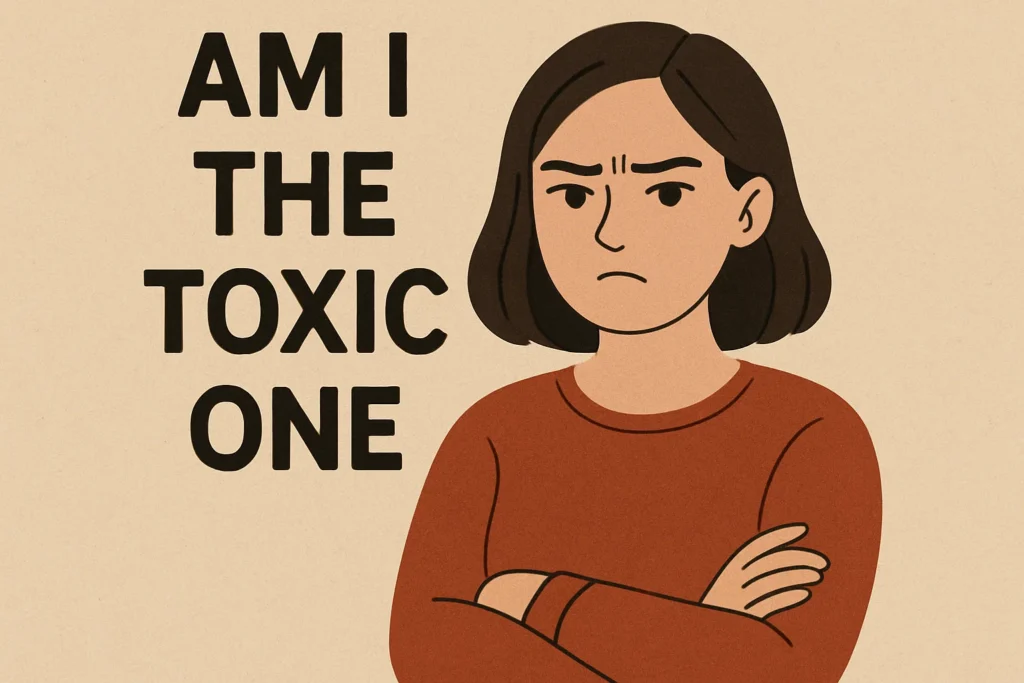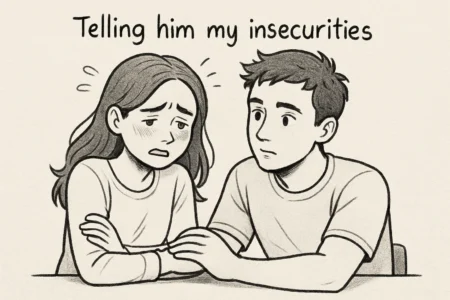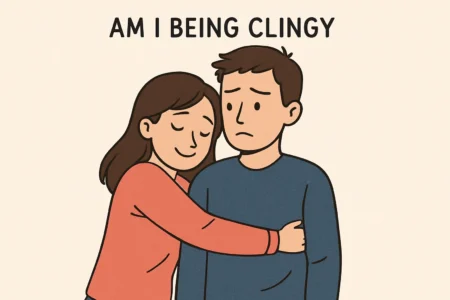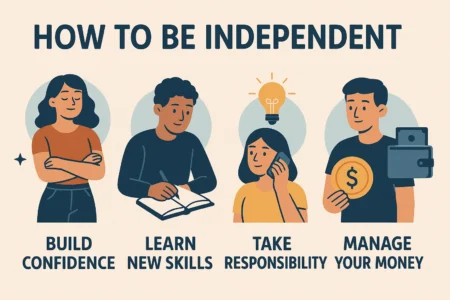It’s a dreadful feeling, isn’t it? That cold, sinking sensation in your stomach. The one that whispers, right after a bad fight, that maybe the problem isn’t your partner. That maybe… it’s you. It’s a question that’s hard to even form in your own mind: am i the toxic one?
If that question brought you here, I want you to take a deep breath. Just asking it puts you in a different category from people who are truly, consistently toxic. Why? Because those who are toxic as a core trait don’t ask. They don’t reflect. They’re far too busy pointing fingers to ever point one at themselves.
The fact that you’re here, worried, means you have empathy. It means you care.
I know this space well. I’ve lived on both sides of it. I’ve been the one asking this question, terrified of the answer. And I’ve also been the person who, looking back with a clarity that stings, had to admit I absolutely was the one causing the damage. It’s a miserable place to be, and shame is a terrible compass. Shame just makes you want to hide.
What you need is clarity.
This isn’t about finding a “bad” person. People are more complicated than that. This is about spotting patterns. It’s about trading that paralyzing shame for awareness. And here’s the most important part: these patterns, which often come from old wounds or fear, are not a life sentence. You can change them. Let’s figure this out.
More in Self-Worth and Insecurities Category
Key Points
- The Question of Self-Reflection in Relationships: Asking yourself if you are the toxic one shows empathy and self-awareness, distinguishing you from genuinely toxic individuals who avoid reflection.
- Understanding Toxic Patterns: Toxicity in relationships refers to consistent behavior patterns that cause emotional harm, impacting the other person’s well-being over time.
- The Challenge of Honest Self-Assessment: Admitting personal faults can be ego-damaging and uncomfortable, but it is a crucial step toward healthier relationship dynamics.
- Impact of Communication Patterns: Using ‘I’ statements fosters constructive dialogue, while blanket blame phrases like ‘You always’ shut down productive conversations.
- Pathways to Change and Healing: Recognizing toxic behaviors provides an opportunity for growth; with self-awareness and support, change is possible.
Why Is This Question So Unbelievably Hard to Ask?
Well, let’s face it: being the victim is so much easier. It’s a clean, simple role. When you’re the one who’s been wronged, you get the sympathy. You get the moral high ground. You’re the one who’s owed an apology. And it feels good, in a way, to be “right.”
To turn that spotlight on yourself and ask, “Wait, am I the one who needs to apologize?”… that’s a huge blow to the ego. It means admitting you inflicted pain. It’s messy. It’s uncomfortable.
I remember a time in my life when my “victim” identity was my shield. Everything was happening to me. My boss was a jerk, my friends were flaky, my partner was inconsiderate. I felt wronged all the time. It protected me. It kept me from having to look at my own behavior—my impossible demands, my hair-trigger temper, my need to start a fight.
Admitting I was the common denominator in all that drama? That would have shattered my whole worldview. It’s a terrifying thing to consider.
So, you’re not just asking a question. You’re doing something brave. You’re signaling that your growth, and the health of your relationship, might be more important than your ego. That’s real strength.
What Does “Toxic” Even Mean in a Relationship?
We hear this word everywhere, and it’s lost a lot of its meaning. It’s used for everything from actual abuse to just being annoying. That’s not helpful.
Let’s get specific. In a relationship, “toxic” isn’t a single bad day or one regrettable comment. It is a consistent pattern of behavior that leaves the other person feeling drained, diminished, anxious, or distressed.
It’s all about the impact, not just the intent. You may not intend to make your partner feel stupid, but if your pattern of constant “constructive criticism” does just that, the behavior is toxic.
Think of it as a spectrum. On one end are minor, thoughtless habits. On the dark end, you find deliberate control, manipulation, and abuse. This article is for those of us who’ve caught a glimpse of our own actions and are worried about where they fall on that spectrum. It’s for the “oh, no” moments.
It’s not about one fight. We all say things we regret. It’s about the pattern. Does your partner seem to “shrink” around you? Do they leave your interactions feeling worse about themselves, more often than not? That’s a huge flag that your pattern is the problem.
Do I Fight Fair, or Do I Fight to Win?
This. This was my big, painful realization. I used to be an excellent arguer. I was fast. My memory was a weapon. I knew exactly what to say to hit a nerve, to win the point.
I can still picture this one fight with an ex. It was over something idiotic, like him forgetting to take out the trash. He started to pull back, to shut down. I felt myself “losing” the argument. So, I reached into my arsenal and pulled out a grenade. I brought up something completely unrelated from months ago, something I knew he was still ashamed of.
His face just… fell. The fight was over. He had no defense. I “won.” He took out the trash and was silent for the rest of the night. I won that battle, but I had just taken a sledgehammer to the foundation of our trust. I didn’t fight to solve the problem (the trash).
Does that sound at all familiar?
Are “You Always” and “You Never” My Go-To Phrases?
Listen to the words you use when you’re angry. Are you saying, “I felt really hurt and ignored when you were late and didn’t text,” or are you shouting, “You are always late! You never think about me!”
The first sentence is an “I” statement. It gives your partner information about your feelings. It opens the door for a conversation and a solution.
The second sentence is an attack. It’s a blanket generalization that’s almost certainly not true. It’s meant to wound. And worse, it’s a conversation-killer. How can someone respond to that? They can’t. They can only defend themselves (“No, I don’t!”) or shut down completely. It’s a dead end.
What About the Silent Treatment? Is That Really Toxic?
This one’s nuanced. There’s a world of difference between “I am so angry I can’t think straight, and I need 20 minutes to cool off” and the silent treatment.
The first approach is healthy. It’s responsible self-regulation. The key? You communicate it. “My brain is spinning, and I’m afraid I’ll say something I don’t mean. I’m going for a walk. I will be back, and we can talk. I promise.”
The silent treatment is a weapon. It’s a cold, passive-aggressive form of control. You’re intentionally withdrawing all affection and communication to punish your partner. You become a blank, icy wall. This forces them into a frantic, anxious dance to try and guess what they did wrong and win back your approval.
It is a power play, pure and simple. It’s designed to make them feel desperate and small. It’s deeply toxic.
Am I Keeping Score?
Healthy relationships run on a currency of generosity and good faith. You do things for your partner because you care, and you trust they do the same for you.
Toxic dynamics, however, run on a detailed, invisible ledger.
Do you have a running tally in your head? “I took out the trash twice, and he only did it once.” “I complimented her in front of her family, so she ‘owes’ me one.” “I was the one who apologized last time, so it’s his turn.”
This isn’t just about chores; it’s a way of thinking.
When you keep score, you’re constantly measuring. You’re holding onto every little slight, every mistake, every time you “won” or “lost.” And you will, absolutely, use this ledger as ammunition in future fights. It’s exactly what I did in that argument. “You might be right about this, but let me pull out this unrelated failure of yours from six months ago.”
It’s a miserable way to live. It makes partnership impossible. You’re not a team; you’re just two opponents in a very long, very exhausting game.
Do I Snoop? The “Just Checking” Lie We Tell Ourselves
This is a big one. A bright, flashing, red light. If you are going through your partner’s phone, reading their emails, scrolling their DMs, or checking their location, you are crossing a major line.
The justification always sounds so reasonable in our own heads. “I just have a weird feeling.” “If he has nothing to hide, it’s not a big deal.” “I just need to know for sure.”
Let’s call that what it is. It’s a lie.
Snooping is not about their behavior. It’s about your insecurity. It’s a desperate attempt to control the uncontrollable, to soothe your own anxiety by violating their privacy.
And here’s the real kicker: it never works. You will not find “nothing” and feel better. You’ll find a name you don’t know and fixate on it. You’ll misread the tone of a text. Or you’ll find nothing at all and conclude they’re just really good at hiding things.
It’s a poison. You’ve introduced a rot into the relationship. You’ve told them, and yourself, that your anxiety is more important than their fundamental right to privacy.
Is “Constructive Criticism” My Cover for Control?
Do you “help” your partner a lot?
- “Ugh, you’re not going to wear that shirt, are you? The blue one is better.”
- “That was a good story, but you kind of butchered the punchline.”
- “Are you sure you want that for dinner? You’re going to feel awful later.”
This isn’t helping. This is nitpicking. This is you, slowly and steadily, trying to sand down all their edges until they fit your perfect mold. It’s a constant message that says, “You, just as you are, are not quite right.”
Imagine being on the receiving end of that. You’d eventually stop trusting your own judgment. You’d stop making choices. You’d either become a resentful, angry person or a hollow shell, always looking to your partner for the “right” answer.
Am I “Protecting” Them or Isolating Them?
This one is so subtle, so sinister, because it often masquerades as love.
- “Your family is so critical of you. It makes me sad. Maybe we should just see them less.”
- “That friend is a bad influence. I just don’t like the person you become when you’re with them.”
At first, it feels like you’re a team. You’re protecting your partner, protecting “us.” But look at the pattern. Does your partner’s world seem to be shrinking? Are their friends and family falling away, one by one, until you are the only person they have left?
This is a classic isolation tactic. When you are their entire support system, their only source of validation, you have total control. It might feel like “closeness” to you, but for them, it’s a cage. Healthy relationships add to a person’s life—they encourage friendships, hobbies, and family. They don’t subtract.
Is My Partner Always Walking on Eggshells?
This is it. This is the most important question. If you want to know if you’re the problem, stop analyzing your intentions and look at your impact.
Does your partner pause before they speak, as if testing the air? Do they constantly check your mood before they share good news or bad? Do they apologize for things that are clearly not their fault, like the waiter being slow? Do they have to manage your emotions before they’re “allowed” to have their own?
If yes, they are walking on eggshells around you.
Why? Because your reactions are unstable. They don’t know what will set you off. They don’t know if they’ll be met with a joke, a sigh, a sudden explosion of anger, a guilt trip, or the cold-shoulder.
When a person can’t feel safe, they make themselves small. They try to become an un-missable target. They will do anything to avoid “poking the bear.” If your partner is living in a state of constant, low-grade anxiety, desperately trying to manage your emotional weather… you are the storm.
Do I Use Guilt as a Weapon?
Guilt is such a handy, quiet weapon. It’s how you get what you want without ever having to be the “bad guy” who makes a direct request.
- “Oh, just go have fun with your friends. I’ll be fine… just sitting here alone, I guess.”
- “Don’t worry about coming to my parents’ house. I’ll just tell them you don’t like them. I’m sure they’ll understand. Mostly.”
- “I guess I just thought you loved me enough to…”
This is emotional manipulation, plain and simple. You’re not being honest. You’re not saying, “I’m feeling lonely and would love a night in,” which is a vulnerable, healthy request. You’re guilting them.
You’re creating a no-win scenario. If they go, they’re a “bad” partner and feel guilty. If they stay, they’re doing it from a place of obligation, not desire, and they feel resentful. It’s a toxic trap.
Am I the “Victim” in Every Single Story?
We’re back to this, aren’t we? This was my armor for years. It’s a defense mechanism, a way to deflect all accountability.
When you’re the victim, nothing is ever your fault.
- “I only yelled because you pushed me!”
- “I had to check your phone because you were being so shady!”
- “I’m in a terrible mood because my boss was a jerk, and the traffic was awful, and now you’re not even listening to me!”
See the pattern? All responsibility for your actions is outsourced. You’re just a pinball, being knocked around by the world. It’s a very tempting, very powerless place to be.
I had a “drama vampire” phase. I’d come home from a job I hated, and my poor partner would have to brace himself. For an hour, I’d recount every injustice, every slight, every person who had wronged me. He’d try to offer solutions. I’d swat them away. He’d try to just listen. It was never enough.
I didn’t want solutions. I wanted him to be as angry as I was. I wanted a co-conspirator. I was making him responsible for managing my misery. I was draining the life out of him, night after night. He got so, so tired. I can’t blame him.
Do I Apologize, or Do I “Sorry, But…”?
Listen to the shape of your apologies. Does a “but” always follow the “sorry”?
- “I’m sorry, but you have to admit, you were…”
- “I’m sorry you feel that way.”
- “I was only trying to help, I’m sorry.”
These are not apologies. They are justifications. They are excuses. “I’m sorry you feel that way” is the absolute worst, a masterpiece of non-apology. It literally translates to: “The problem isn’t my behavior; it’s your reaction to it.”
A real apology is clean. It’s hard. It takes 100% ownership. It sounds like this: “I am sorry. What I said was wrong. It was unfair, and it hurt you. There’s no excuse. I will do my best not to do it again.”
That’s it. No “but.” No “if.” It doesn’t explain or defend. It just owns. If you find it physically impossible to apologize without defending yourself, you’re not apologizing. You’re just reloading.
Okay, I See Myself in This. Am I a Monster?
Take a breath.
No. You are not a monster.
You are a human. You are a person who, for a million different reasons, has developed some very unhealthy ways of coping with the world. The fact that you’ve read this far, the fact that you feel that sick, churning feeling in your gut… that is the best possible sign.
It means you are self-aware. It means you have empathy. Monsters don’t care if they’re monsters. You do.
This is not a life sentence. This is not a permanent brand on your soul. You are not “The Toxic One.” You are a person who has been using toxic behaviors. And behaviors can be changed.
This moment of realization is the hardest part. It truly is. But it’s also the only way out. You can’t fix a problem you refuse to see. You see it now. This is the moment you get your power back. Shame wants you to run and hide. Awareness gives you the choice to change.
Where Do These Behaviors Even Come From?
These patterns don’t just spring from nowhere. For most of us, they are the mutated, overgrown, unhealthy descendants of strategies we learned to protect ourselves.
- Maybe you grew up in a chaotic house where you had to “win” every fight just to be seen.
- Maybe a past partner betrayed you, and now “snooping” feels like a desperate, broken way to protect yourself from ever being blindsided again.
- Maybe you learned that love was control, that “fixing” someone was your job.
- Maybe you learned that the only way to get your needs met was to manipulate, to play the victim, or to use guilt.
Understanding why can give you compassion for yourself, which you will need. But there’s a critical line here: An explanation is not an excuse. Your past trauma is not your fault. But your present behavior is your responsibility.
What Are the First Practical Steps?
You can change. The work is hard, but the steps are simple. Here are a few things you can do, starting today:
- Learn to press pause. The single greatest tool you have is the space between a trigger (that feeling of anger, fear, defensiveness) and your reaction. Your new job is to make that space just a little bigger. The next time you feel it, your goal is to do one thing: Shut your mouth. Just for one second. Then two. Breathe. You don’t have to react instantly.
- Use a “safe word” with your partner. And no, not for that. For arguments. Agree on a word (“Stop,” “Red,” “Pause”) that either of you can say. When that word is said, the conversation stops. No last shots. It’s a circuit-breaker. It gives you both time to cool down before you say the things you can’t take back.
- Practice self-soothing. This is huge. Your feelings are your own. When you feel that anxiety or anger rising, find a way to soothe yourself that doesn’t involve your partner. Go for a walk. Put your face in cold water. Listen to a specific song. You must learn to be your own emotional first-responder.
- Apologize. For real. The next time you mess up (and you will, because you’re human), try the real apology. “I’m sorry. That was my insecurity. It was unfair to you.” It will feel like swallowing glass. Do it anyway. It gets easier.
- Seek professional help. This is the fast-track. A good therapist is a coach. They can help you see your patterns from the outside and give you a toolbox of proven, effective strategies to change them. It’s the best money you will ever spend.
My Most Painful Realization
I’ll end with this. My most toxic relationship wasn’t the one where I was cheated on. It was the one I’ve been describing—the one where I was the sharp-tongued arguer, the score-keeper, the one who wielded his past hurts like a club.
It ended, of course. And in our last, awful conversation, he said something that haunts me to this day: “I just… I can’t. I am exhausted. I feel like I am never, ever good enough for you. I’m always to blame, even when I don’t know what I did wrong.”
It was a knife in the chest. My first, immediate, toxic instinct was to defend myself. To get angry. To call him weak.
But his words just echoed. I went to therapy to “get over the breakup.” My therapist, in her kind, persistent way, just kept pointing me back to the patterns. Back to the “dishes” fight. Back to my victim-stance. And one day, it just cracked wide open.
I was the common denominator.
I was the one who was relentlessly critical. I was the one who kept score. I was the one who fought to win. It wasn’t that I was a “bad person.” I was an unhealthy partner. I was so insecure, so terrified of being abandoned, that I had become a walking, talking, breathing defense mechanism. And I was leaving a trail of exhausted, hurt people behind me.
That realization was, without question, the worst and best day of my life. It was the day I stopped blaming everyone else. It was the day I had to learn to be quiet. To be wrong. To be secure in myself, by myself.
The Bravest Question You’ll Ever Ask
If you’ve seen yourself in these words, I want you to hear me: The person who has the courage to wonder, “am I the toxic one?” is, by definition, a person who can change.
You are not a monster. You are not a lost cause. You are a human being at a fork in the road. The “toxic” path is the easy one, in a way. It’s all blame, defensiveness, and victimhood. It’s also a dead end.
The other path is the one you’re on right now. It’s the one of accountability. Of self-awareness. Of radical honesty. It’s so much harder. But it’s the only one that leads to healthy, trusting, loving relationships. It’s the only one that leads back to a version of yourself you can be proud of.
You’ve already asked the hardest question. You’re already on your way.
For more information on building healthy relationship habits, this resource on managing conflict and healthy communication from UC Davis is a great academic-backed starting point.
FAQ – Am I the Toxic One
Why is it so hard to ask oneself if they are the toxic one in a relationship?
It is hard because admitting fault to oneself can be a blow to the ego, and it requires a great deal of vulnerability to face one’s own contribution to relationship issues.
What does the term ‘toxic’ mean in the context of a relationship?
In a relationship, ‘toxic’ refers to a consistent pattern of behavior that leaves the other person feeling drained, diminished, anxious, or distressed, impacting the relationship negatively.
How can I tell if I fight to win rather than to resolve issues?
If your aim in arguments is to ‘win’ rather than to solve the problem, you may use tactics like bringing up unrelated issues or trying to dominate the conversation, which damages trust and intimacy.
What are some signs that I might be using guilt as a manipulation tool in my relationship?
Using guilt shows in phrases like ‘I guess I just thought you loved me enough to…’ or ‘Don’t worry about coming, I’ll tell them you dislike them,’ which create no-win scenarios and emotional obligation.
If I realize I’ve been toxic, is there hope for change?
Yes, recognizing toxic behaviors is the first step toward change, and with self-awareness, accountability, and possibly professional help, it is possible to adopt healthier relationship patterns.





